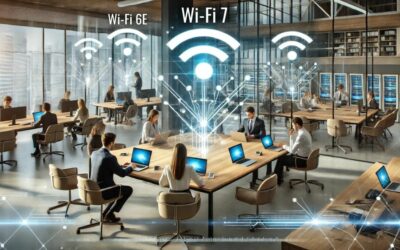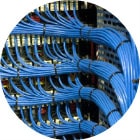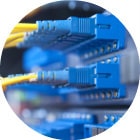5G networks are the next generation of mobile internet connectivity. 5G offers faster speeds and more reliable connections on smartphones and other devices.
Combining cutting-edge network technology and the very latest research, 5G should offer connections that are up to 100 times faster than current connections, with an average download speed of around 1GBps expected.
The networks will help power a huge rise in Internet of Things (IoT) technology, providing the infrastructure needed to carry extremely large amounts of data, allowing for a smarter and more connected business and the world for that matter.
With development well underway, 5G networks are expected to launch by the year 2020, working alongside existing 3G and 4G technology to provide speedier connections that stay online no matter where you are.
What are the benefits of 5G networks?
- Faster download & upload speeds
- More reliable mobile connections
- Smoother streaming of online content
- Higher-quality voice and video calls
- Greater number of connected IoT devices
- A major expansion of advanced technologies – including self-driving cars and smart cities
- Seamless integration of data intensive virtual reality in commercial & manufacturing
Will I be able to connect to 5G from my current devices?
Existing smartphones, tablets or other devices may not be able to connect to 5G, or may incur extra costs to do so. However, we should soon see devices coming with 5G connection as default.
Although 5G should represent a major step up from current 4G and 3G networks, the new technology won’t immediately replace its predecessor…at least, not at first. Instead, 5G should link in with any existing networks to ensure users never lose connection. Older networks will act as back-up in areas not covered by 5G networks.
Much like the gradual takeover of 4G networks from the previous generation, existing network infrastructure may need to be upgraded or even replaced in order to deal with the new technology, and homes and businesses may also need to get new services installed.
Here are the specs:
The GSMA has outlined 8 criteria for a connection needing to meet a majority of these in order to qualify as 5G:
- 1-10Gbps connections to end points in the field
- 1 millisecond end-to-end round trip delay (latency)
- 1000x bandwidth per unit area
- (Perception of) 99.999% availability
- 10-100x number of connected devices
- (Perception of) 100% coverage
- 90% reduction in network energy usage
- Up to 10 year battery life for low power, machine-type devices
Wireless carriers have announced plans to roll out 5G service to a handful of cities later this year. But to really take advantage, you’ll need a 5G-enabled device, which probably won’t be available until next year.
Get your business ready to take full advantage of 5 speed. Contact us for an assessment.









